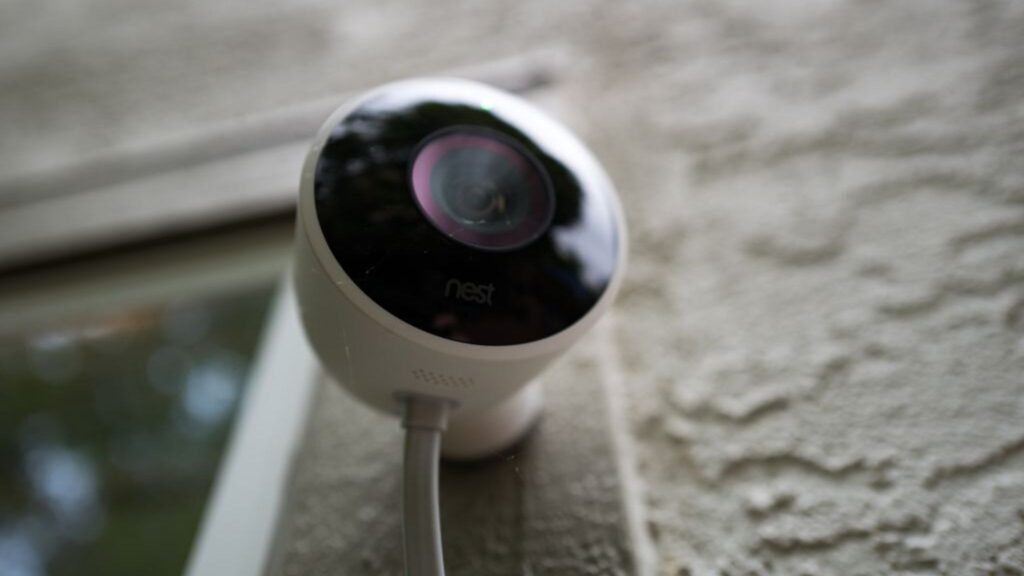
Smart Home Devices Collecting Excessive User Data
In the UK, companies have to be clear about what data they collect and how they use it. But, the privacy policies that come with our devices are often really long and complicated, so most people don’t bother reading them.

Consumer Group Warns: Smart home devices, including appliances, collect too much user data, risking sharing with Social Media and Marketing Companies. Which? reveals apps request unnecessary information during setup.
Some examples of offenders include Google Thermostats requesting location and contacts, LG washing machines asking for date of birth, and Sony TVs Tracking Viewing Habits.
In some instances, Which? found that such data gets shared with companies like Meta, the owner of Facebook and Instagram, as well as TikTok.

UK Data Protection Rules require companies to be open about what data they collect and how they use it. However, most customers are unaware of how much Data might be Shared. According to a Which? survey, one-third of people admitted they don’t read Device Privacy Policies, and many just quickly look through them. For Example, the documentation for a Google Nest device contains more than 20,000 words.
Rocio Concha, the Director of Policy and Advocacy at the consumer group, suggested that the Information Commissioner’s Office, which oversees data protection in the UK, should consider updating its guidelines to provide better protection for people.
“Firms should not collect more data than they need to provide the service that’s on offer,” she said.
“Particularly if they are going to bury this important information in lengthy terms and conditions.”

Who are the biggest wrongdoers?
The research examined the data that users had to provide during the setup process, the data permissions requested by the relevant app for a device, and the subsequent tracking activities.
Smart cameras and doorbells from Ezviz, available at many major UK retailers, were found to be particularly data-hungry. They shared data with companies such as Google, Meta, Chinese phone maker Huawei, and TikTok’s business marketing unit called Pangle. Sky News has reached out to Ezviz for comment.
Google Nest products had varying data collection depending on whether users managed them from an Android or Apple phone. The Android system, which is Google’s mobile operating system, collected additional data such as contacts and location.
In a statement, the search giant said it “fully complies with applicable privacy laws and provides transparency to our users regarding the data we collect and how we use it”.

Not surprisingly, other smart home brands like Blink and Ring use tracking services from their parent company, Amazon.
On Android devices, Ring even asks for permission to track people’s location in the background, even though it’s not necessary to notify them about their home security system. This means they could be tracked even when they’re not using the app. While consumers can choose not to share this data, it’s automatically enabled.
Amazon stated that its Blink, Ring, and Echo products were created with the intention of “safeguarding our customers’ privacy and security.”
“We never sell their personal data, and we never stop working to keep their information safe,” it said.

Nowadays, the desire for data extends to regular household appliances like washing machines and TVs, which have been getting more connected to the internet.
In the case of the TVs from LG, Samsung, and Sony, they all display advertisements and request access to user data to tailor the ads to individual preferences.
While tracking can be turned off, Which? discovered that all three companies bundled the settings into a single “accept all” button instead of encouraging customers to better understand what’s going on.
Samsung emphasized that security and privacy are their top priorities and mentioned that their users can review, download, and delete any stored data from their products and apps.
When it comes to smart washing machines, LG’s devices insist on users providing their name, email, phone contacts, precise location, phone number, and date of birth before allowing access to their app.
LG told Sky News the app requested such details “to help tailor the experience, learn habits and anticipate needs, enabling customers to manage their smart appliance on the go”.
“All LG products can be used manually without the need to share personal details,” it said.
Miele’s app defaults to tracking a user’s location, and Hoover’s Android app requires access to contacts
The company said data is collected “to optimise appliance usage and offer customers additional features”. It added it is “transparent with its customers”.
Ms Concha from Which? said: “Consumers have already paid for smart products, in some cases thousands of pounds, so it is excessive that they have to continue to ‘pay’ with their personal information.”
Never miss any important news. Subscribe to our newsletter.
Related News


British Investor Who Predicted US Slump Warns of Next Crash

I’m a Death Doula: 4 Reasons I Believe Death Isn’t the End


Tech to Reverse Climate Change & Revive Extinct Species

AI Unlocks the Brain’s Intelligence Pathways

XPENG Unveils Iron Robot with 60 Human-like Joints

Can AI Outsmart Humanity?

11 ChatGPT Prompts to Boost Your Personal Brand

Keir Starmer Hints at Possible Tax Hikes on Asset Income

Navigating the Future of AI: Insights from Eric Schmidt
